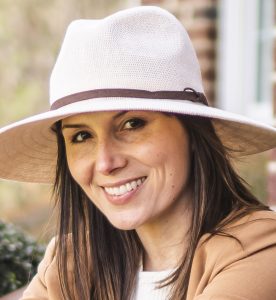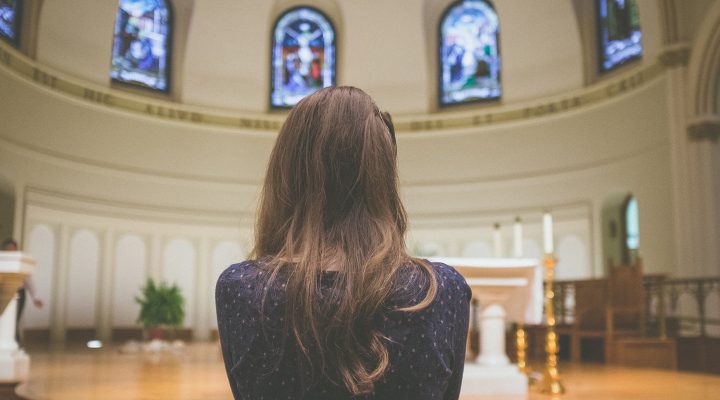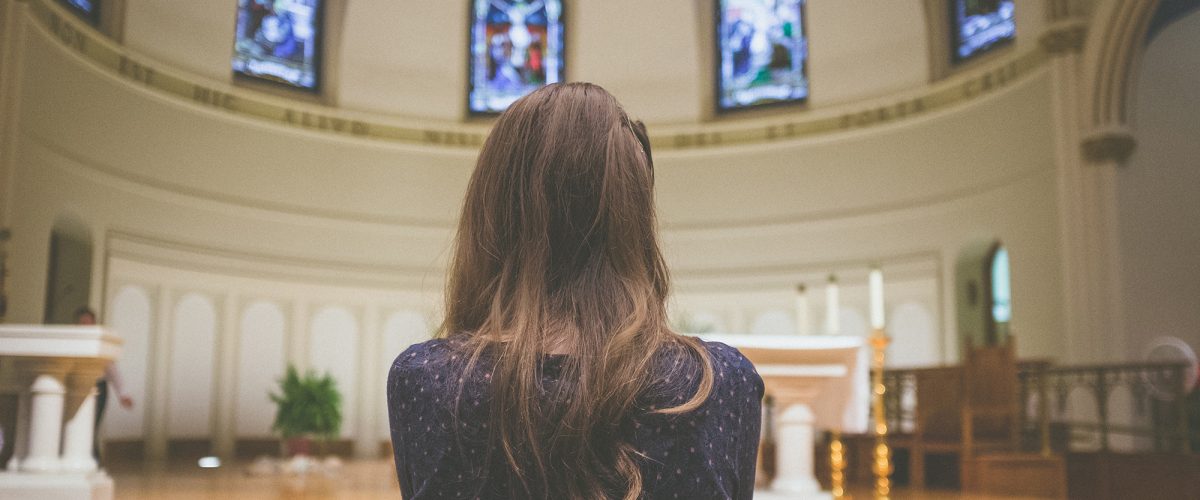“Men are the primary theologians in their family.”
The words sent a jolt through my brain, and my back straightened as I stared up at the guest preacher behind the podium. I scanned the room. Heads were nodding in agreement, both male and female, as the preacher continued his sermon. He declared a husband is the primary theologian for his wife and a father is the primary theologian for his children.

Felicia Smith
My heart sank. I am a woman who has been told she is spiritually inferior because of her gender, a woman who was required to remain silent during church conferences, who was not allowed to lead a ministry apart from her husband, who was denied the opportunity to teach a Sunday school class because there were adult males present, who was made to adhere to a strict dress code while in the church building, who was warned never to usurp male authority, and who was told she would even have to stop talking to her own sons about the Bible once they reach a certain age.
And now, even in a different church where I thought women were considered spiritually equal and highly valued, I was told I am a lesser theologian in my family.
Lord, is there any church where I will be considered an equal?
“Sadly, many left the church that Sunday believing they were spiritually inferior to their husbands.”
My hopes deflated. I looked around the room again at all the women who were being told they should take a theological backseat. These are women who I know and care about, my sisters in Christ, and my friends, and sadly, many left the church that Sunday believing they were spiritually inferior to their husbands.
The worst part of it all is I had led these women for two-and-a-half years as the director of the church’s women’s ministry, and even though I spoke to them at our women’s events, chose guest speakers for conferences and retreats and selected materials for Wednesday night Bible studies and weekly discipleship meetings, I never once used this platform to tell my sisters that God has not put limits on their spirituality. I never asserted that they are equal theologians, I never booked a guest speaker who affirmed the ministry callings of women, and I never chose a curriculum that properly exegeted Scripture to explain that Paul was not silencing women and placing them under man’s spiritual authority.
Two-and-a-half years wasted.
I had the chance to help these women break free of the shackles bad interpretation puts on women in the home and church, to encourage them to step into their purposes and callings, and to urge them to take their spiritual gifts off the shelf and get to work in the kingdom. But I stayed silent on the matter.
Why? The same reason I have hesitated to use the P word. God called me to preach — that’s one thing I know for sure — but usually, when I say the P word, someone winces or shifts uncomfortably, or worse, replies, “Women can’t preach.”
I’ve grown weary of having to justify my place behind the pulpit, and to be honest, I just want to share the gospel without having to convince others God has called me to do so; I want to preach without having to argue and debate Scripture beforehand.
“I want to preach without having to argue and debate Scripture beforehand.”
I have referred to what I do as “speaking” or “teaching” at times when I anticipated that using the P word would make people uncomfortable, because making people uncomfortable is a sure-fire way to lose friends. The truth is, I didn’t address the topic of biblical womanhood while I was the director of the women’s ministry because I was afraid of ruffling feathers and straining relationships, and I really didn’t want to lose friends.
As I sat in the sanctuary listening to the guest preacher, I knew skirting the issue had been a mistake, and now, the women in my church might not recognize the error in this preacher’s message. I swallowed the lump rising in my throat as the realization hit: I was part of the problem.
I turned to face my husband, tears stinging the corners of my eyes. “Do you want to leave?” he asked. Yes, more than ever. I nodded, and we stood up and walked out, right in the middle of the sermon.
It probably made people uncomfortable when we walked out. As we stepped into the church lobby, two friends looked at us confused and asked us why we were leaving early. No skirting anymore.
“Because I listened to that lie for 13 years, and I won’t do it again,” I answered, as direct as I’ve ever been. Both friends looked uncomfortable. That day, I made a conscious decision no longer to worry about what was comfortable but only what was right and true.
Martin Luther wasn’t worried about comfort when he hammered his 95 theses on the door of Wittenberg’s church. Nor was William Tyndale when he defied the pope and produced an English translation of the Bible. Nor was Margaret Meuse Clay when she preached without a license in Colonial America. Nor was Lottie Moon when she traveled and evangelized as an unmarried missionary. Nor was Addie Davis when she was ordained in a Southern Baptist church despite opposition of committee members. Nor were the leaders of Saddleback Church when they defied the SBC and ordained three women.
“Maybe we all need to get a little uncomfortable, because we cannot afford to stay silent on this matter any longer.”
Maybe we all need to get a little uncomfortable, because we cannot afford to stay silent on this matter any longer. Every time we attend a church meeting where women are prohibited from speaking, we are endorsing the practice of silencing women. It may be easier and more comfortable for us to just show up to the church conference, but what is the cost?
When we turn a blind eye to women being denied opportunities to serve in the church and when we use watered-down terminology to describe a woman’s calling, we are sending the message that there are limitations on what women can do for the Lord. The cost is this: Half of the church are laying aside their spiritual gifts, believing the Bible forbids them from using those gifts to advance the kingdom. And every time this happens, the devil wins.
We cannot afford to be comfortable anymore.
Felicia Caid Smith is a former history teacher, Sunday school teacher, homeschool mom, and women’s ministry leader. She earned both a master of theological studies degree and graduate certificate in Greek studies from New Orleans Baptist Theological Seminary. She blogs at raisingtheologians.com, where she encourages women to study the Bible, live it out and pass it on.


